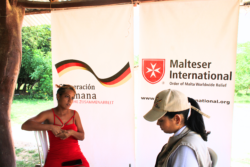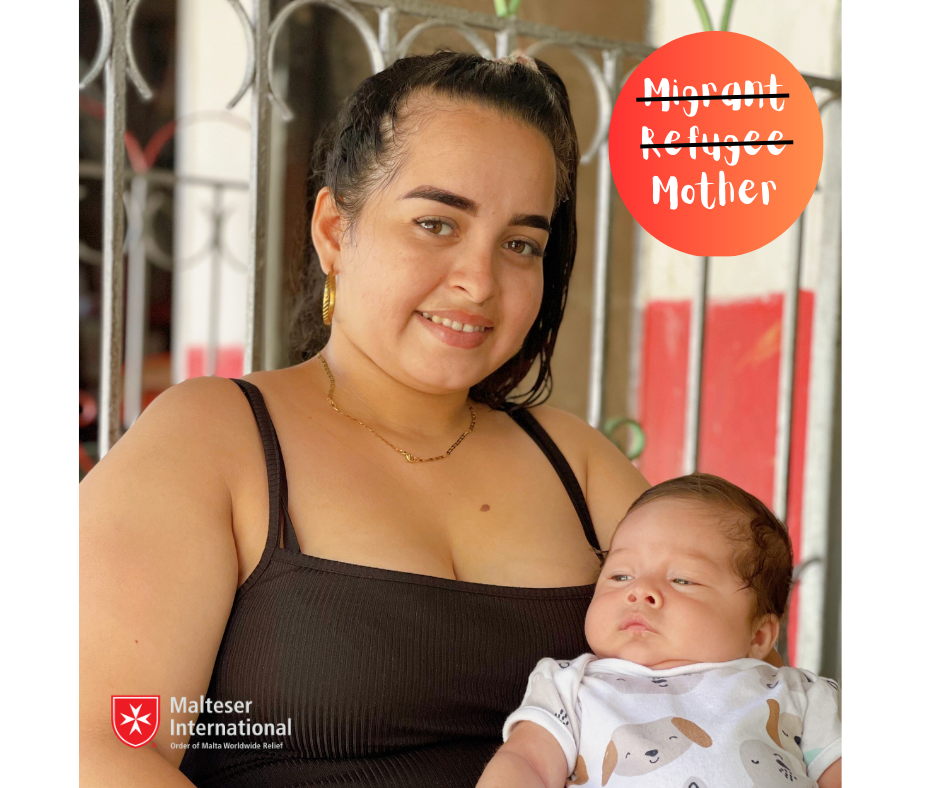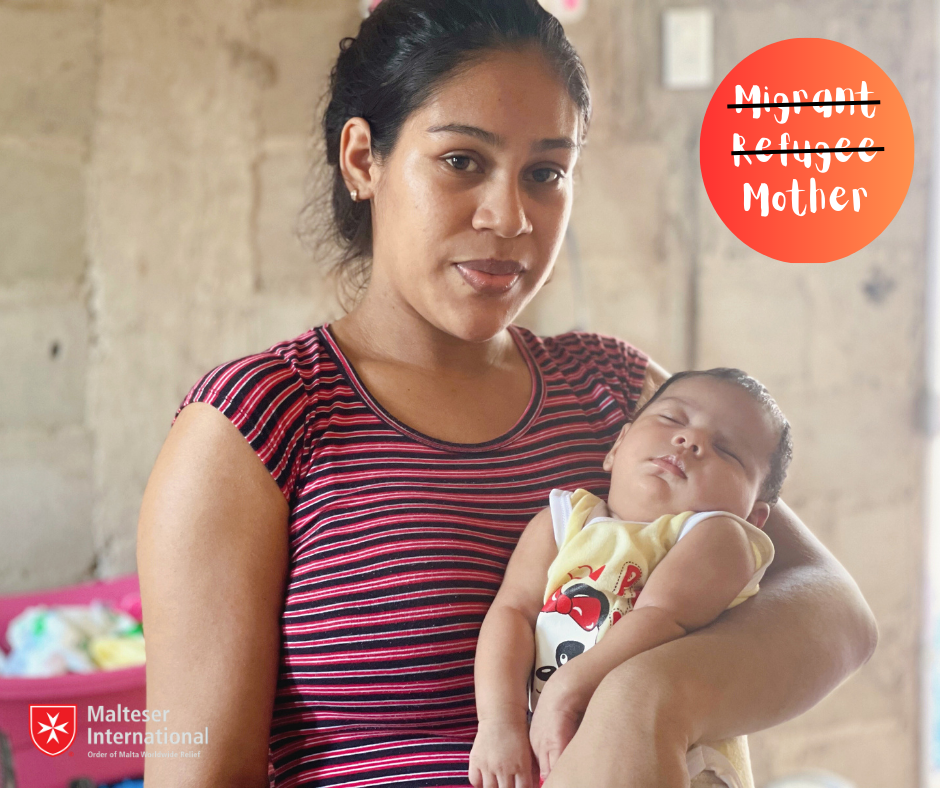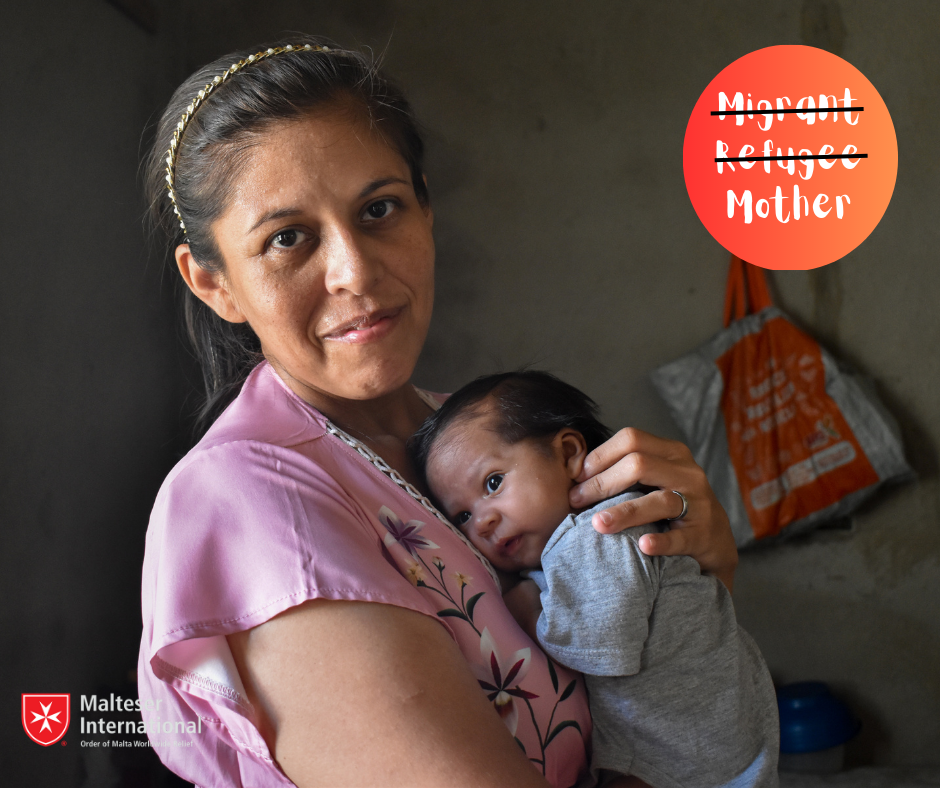Americas
Luzdary’s Mental Health Journey

Riohacha, La Guajira, Colombia– In 2001, Luzdary Palomo’s family made the decision to depart from Montería, a city situated in the northern region of Colombia. Living there had become increasingly challenging amid the armed conflict, rendering employment opportunities scarce and instilling a pervasive sense of unease among the populace. The residents of this region were all too often subjected to acts of violence, further exacerbating the already fraught circumstances.
At the age of 8, Luzdary arrived with her family in the Juan de Aragón indigenous community, nestled in the rural outskirts of Riohacha. This community, predominantly populated by members of the Wayuu ethnic group, warmly welcomed them with hospitality and generosity.
“I immediately empathized with the community, they welcomed me. I studied here and learned wayuunaiki,” says Luzdary.
Sometime later, when she was approximately 20 years old, Luzdary and her partner welcomed their first child, a boy, and three years later, a girl joined their family. However, as time passed, her husband’s behavior started to shift, marked by the consumption of hallucinogenic substances.
Through the MAP Health project, psychological care was provided to 41 people during 2023 in indigenous and rural communities of Riohacha and Manaure.
Over time, the situation escalated to constant psychological abuse, which affected Luzdary’s health, and created a hostile environment for her and her children. For several years, she endured that situation until she summoned the courage to make the decision to separate. Despite taking this step, the lingering consequences of years of abuse continued to haunt her, shaping her into a reserved and withdrawn woman.
The Impactful Work That Transforms Lives
MAP Health, a program supported by the German Federal Ministry for Economic Cooperation and Development, is carried out by Malteser International Americas. This program has been providing essential health services for free in 20 rural communities in the department of La Guajira in Colombia. Each of the activities are carried out with the collaborative work of partners in the territory, such as the health services provider company – Ipsi Anashiwaya.
The services offered include general medical care, medication delivery, and psychological consultations. These health brigades are distinguished by their unique approach and include bilingual Wayuu personnel who are fluent in both Spanish and Wayuunaiki, the native indigenous language.
“Psychological care with a differential approach is important, since it focuses on adapting to the specific characteristics of each individual, considering their cultural, social, ethnic, gender, among others,” comments Steffy Selligman, psychologist with the MAP Salud program.
The power of psychology
In April 2023, Luzdary accesses psychological care through a health brigade. The MAP Salud team arrives in the community of Juan de Aragón. They provide comprehensive care, addressing general medicine first and then providing psychology services.
This experience marked the first time in Luzdary’s life that she was able to receive psychological care. “I felt like I had to let out a lot of things that I had been keeping in for a long time. The psychological care seemed excellent to me,” she says.
73.17% of those who benefit from psychological care are women.
Since Luzdary began engaging with the psychologist, she has noticed a remarkable improvement in her mood and communication with her ex-partner. This transformative experience has prompted her to advocate for mental health within her community, recognizing and addressing the prevalent stigmas that many indigenous individuals hold towards such services.
Thanks to the therapy sessions she has undergone, coupled with the unwavering support of her community, the emotional reinforcement from her parents, and the unconditional love of her two children, aged 9 and 7, Luzdary has undergone a profound transformation in her life. Presently, she dedicates herself to selling natural juices in Juan de Aragón, the very community where her children receive their education. In doing so, she continues the tradition she initiated upon arriving in the community at the age of 8.
Improving physical and mental health
The mobile health brigades primarily serve remote indigenous and rural communities in La Guajira, where the majority of residents lack access to the formal health system. Alongside medical services, these brigades offer educational programs aimed at raising awareness about mental health, and actively encourage seeking medical assistance when needed.
Psychological care is administered in person to the local population. This approach not only fosters safe and reliable environments for patients but also acknowledges the vulnerable circumstances of many individuals who encounter obstacles in accessing healthcare due to the considerable distances separating their communities.
Malteser International Americas is an affiliate of Malteser International and is the worldwide relief and development organization of the Sovereign Order of Malta. The organization provides aid to people in need in around 140 projects in 36 countries, regardless of their religion, gender, origin, or political convictions. Christian values and humanitarian principles form the basis of its work. Further information: www.orderofmaltarelief.org



